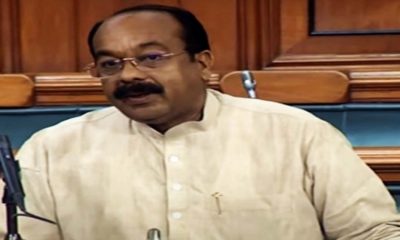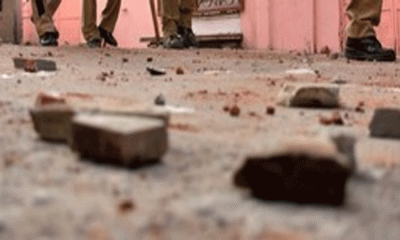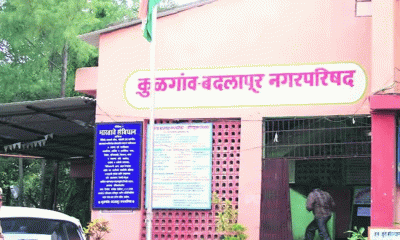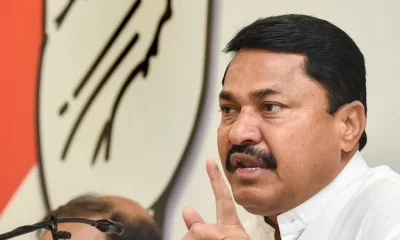National News
Explained: Delhi Excise policy faulty or faulty implementation?

AAP government’s new excise policy 2021-22 that came into force on November 17 last year has drawn severe criticism from the opposition and the industry experts in the national capital for multiple reasons.
Under the new policy, the retail licences were given to private bidders for 849 vends across the city divided into 32 zones. Opposing the policy, the opposition has lodged complaint with the L-G as well as central agencies seeking a probe into it.
The allegations
Delhi LG Vinai Kumar Saxena has recommended a CBI probe based on the Delhi Chief Secretary’s July 8 report which has flagged “deliberate and gross procedural lapses to provide post tender undue benefits to liquor licensees for the year 2021-2022”.
The Chief Secretary report has also pointed out prima facie violations of GNCTD Act 1991, Transaction of Business Rules (ToBR)-1993, Delhi Excise Act-2009 and Delhi Excise Rules-2010.
As the Excise Department is headed by Manish Sisodia, he faces allegations of financial quid pro quo in executing major decisions around the excise policy which reportedly huge financial implications.
He also extended undue financial favours to the liquor licensees much after the tenders had been awarded and thus caused huge losses to the ex-chequer.
The Excise Department reportedly gave a waiver of Rs 144.36 crore to the licencees on the tendered licence fee citing pandemic as an excuse. The excise department under Sisodia revised the formula of calculation of rates of foreign liquor and removed the levy of import pass fee of Rs 50 per case on beer on in its November 8, 2021 order.
The AAP government is also accused of attempting to legalise “these illegal decisions” by getting the nod of cabinet as recently July 14 which is said to be in violation of laid down rules and procedures.
Aam Admi Party’s defence
In a press briefing shortly after LG recommended a CBI probe, Delhi Chief Minister Arvind Kejriwal termed the case “false” and said that BJP is afraid of AAP’s expansion.
“The whole case is fabricated. I have known Sisodia for the past 22 years. He is honest. When he became a minister the Delhi government schools were in a poor condition. He worked day and night to bring them to the level where a judge’s child and a rickshaw driver’s child sit together to study,” said CM Kejriwal.
Policy that led to liquor crisis
Delhi residents are facing the shortage of liquor of their choice as the capital city is witnessing shortage across various categories at many outlets in the city. Even some premium category whiskies are not available in below one litre quantity at various outlets.
On being asked about the reason behind such shortage, the outlet keepers have one word to say “supply chain problem”. Among many other reasons, one important factor causing shortage is the new policy which has led to the sharp decline in the number of wine shops being operated currently in the market.
“Only around 464 shops are in operation currently in the market whereas the city like Delhi must have around 850 outlets to serve the residents”, said an industry expert on condition of anonymity.
What Expert says
The industry expert says that policy was good, however on ground level, the implementation was not good. “I believe that the Excise policy was and is fundamentally good. It takes a different and progressive look at alcohol sale and consumption befitting a modern metropolis that Delhi is. However, I think that implementation on ground fell short. It was too slow, in patches and unable to break away from historical bureaucratic apathy towards trade. In its concept, the size of zones is too big”, Vinod Giri, Director General of the Confederation of Indian Alcoholic Beverage Companies (CIABC) told IANS.
Giri said that the industry has repeatedly raised the matter of keeping zone sizes small to reduce financial stakes of licensees, improve loss bearing capacity if any, and prevent monopolies. “We also have suggested more simplicity and flexibility in operational issues such as license ownership changes. I am of view that with some tweaking the policy can deliver what it was meant to – positive dividend for all stakeholders”, Giri told IANS.
Opposition’s Claims
Union minister and New Delhi BJP MP Meenakshi Lekhi on Friday alleged the violations by Delhi government in the Delhi liquor policy.
Addressing a press conference, Lekhi showed documents saying that they “exposed” discrepancies by the government in giving waivers to liquor firms.
Lekhi claimed, “firms were given a waiver of Rs 144.36 crore on 14 July 2022 without the Cabinet’s nod.”
She further claimed that in another instance, a company was returned its Rs 30 crore earnest deposit money without following the due procedure.
National News
J&K to receive Rs 5.5 billion investment in tourism sector: Omar Abdullah

Srinagar, Dec 13 (IANS) Chief Minister Omar Abdullah said on Saturday that J&K is set to receive Rs 5.5 billion investment in the tourism sector under an externally funded project.
Omar Abdullah hoped that the investment and collective effort would help J&K establish itself again as India’s leading adventure tourism destination.
Earlier in the day, the Chief Minister inaugurated Asia’s longest ski drag lift at Kongdori, Gulmarg. This landmark addition will significantly enhance skiing infrastructure and further strengthen Gulmarg’s standing on the international winter sports map.
The Chief Minister also inaugurated the rotating conference hall at Affarwat, Gulmarg. He was accompanied by Advisor Nasir Sogandi, MLA Gulmarg Farooq Shah and MLA Zadibal Tanvir Sadiq.
Later Addressing a gathering of adventure tour operations, who are here to attend 17th annual convention of the Adventure Tour Operators Association of India (ATOAI) being held from December 17th to December 20th, the Chief Minister said Jammu and Kashmir has immense natural potential and, if properly blended with professional experience and coordinated work, there would be no difficulty in restoring its past position in adventure tourism.
Omar said he had made the point earlier as well that the success of tourism should not be measured by bringing tourists to Kashmir once, but real success would be achieved only when tourists feel motivated to return repeatedly, year after year.
He said the approach of the government and the tourism sector should always be centred on long-term engagement with visitors.
“Our attempt should be that tourists say they will not go anywhere else and will come only to Kashmir to celebrate their vacations. Such a goal could be achieved only if all stakeholders worked together,” he said.
The Chief Minister added that the tourism department and all related agencies must act in coordination to strengthen the sector and improve the overall tourist experience.
“It has been extremely difficult for Jammu and Kashmir, with setbacks and troubling incidents emerging from different places almost every month. At times, it felt as if the region was being repeatedly hit from one side or another,” he added.
Omar said that even the hope of some relief during winter did not fully materialize as the season remained largely dry, which further impacted tourism and those dependent on it for their livelihoods. He asked people to pray for snowfall, but not in such a measure that it becomes unbearable.
National News
Mamata Banerjee announces judicial committee to probe chaos at Salt Lake Stadium over Lionel Messi’s visit
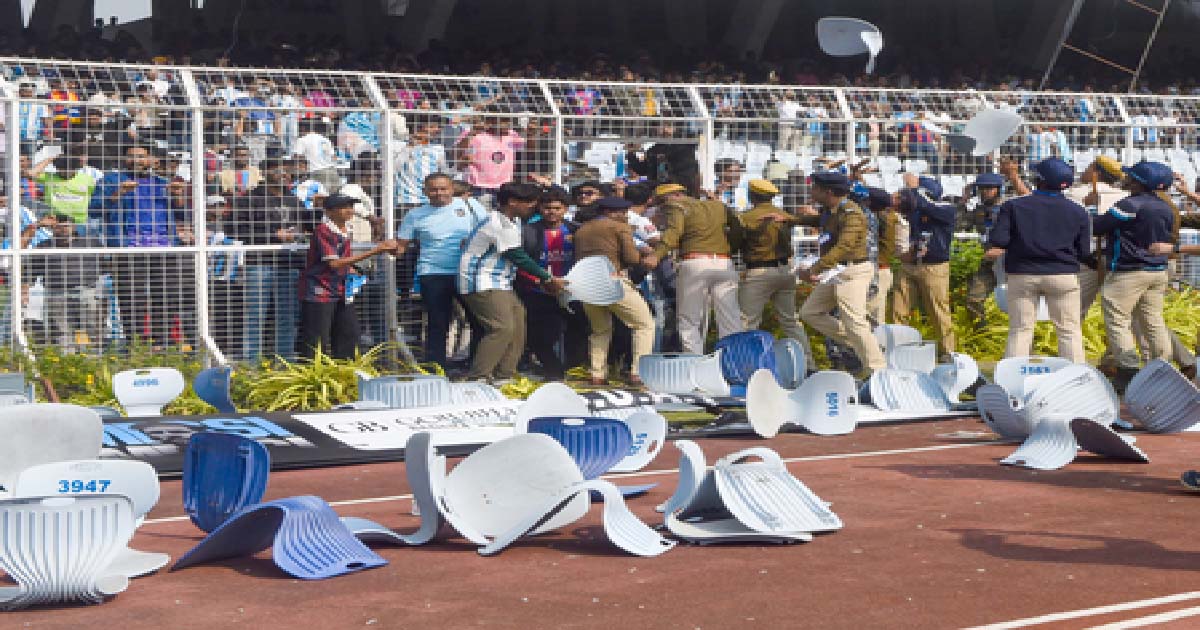
Kolkata, Dec 13: With chaos and vandalism breaking out at Salt Lake Stadium on the northern outskirts of Kolkata on Saturday over high ticket prices and limited access to Argentinian soccer star Lionel Messi during his visit to the stadium, West Bengal Chief Minister Mamata Banerjee announced setting up a judicial committee headed by a retired judge of the Calcutta High Court to probe the mismanagement that led to the chaos.
With the agitators resorting to a rampage within the stadium over limited access to Messi despite purchasing tickets at exorbitant prices, the police had to resort to a massive lathi charge and deploy Rapid Action Force (RAF), following which the Argentinian soccer star left the stadium early.
The Chief Minister was on her way to the stadium. However, on receiving the news of the ruckus at the stadium, she directed her driver to turn back the car. Soon after that, she issued a statement announcing her decision to set up a judicial committee headed by a retired judge of the Calcutta High Court to probe the mismanagement that led to the chaos.
“I am deeply disturbed and shocked by the mismanagement witnessed today at Salt Lake Stadium. I was on my way to the stadium to attend the event along with thousands of sports lovers and fans who had gathered to catch a glimpse of their favourite footballer, Lionel Messi. I sincerely apologise to Lionel Messi, as well as to all sports lovers and his fans, for the unfortunate incident,” the Chief Minister said in her social media statement.
Announcing the decision to form the judicial probe committee, she said that the committee will be headed by Justice (Retd) Ashim Kumar Ray. The state chief secretary, Manoj Pant, and the additional secretary to the state home and hill affairs department, Nandini Chakraborty, will be the two other members of the probe panel.
“The committee will conduct a detailed enquiry into the incident, fix responsibility, and recommend measures to prevent such occurrences in the future. Once again, I extend my heartfelt apologies to all sports lovers, the Chief Minister added.
National News
Lionel Messi GOAT India Tour: Traffic Diversions Announced In Mumbai On December 14 | Know Restrictions For Roads Around Wankhede Stadium

Mumbai: The Mumbai Police has announced traffic diversions as football fans in the city are set for a major attraction, with Argentina skipper and World Cup winner Lionel Messi scheduled to visit Mumbai on December 14. The global football icon will visit Wankhede Stadium, where the event is set to begin at 5 pm. With a large turnout expected, the police have put special traffic arrangements and diversions in place to manage crowd movement and ensure smooth traffic flow in and around the stadium area.
diversions will be effective on 14 December from 12:00 pm to 11:00 pm.
According to the report, commuters heading to Wankhede Stadium should note that no parking will be permitted inside the stadium premises. As per the report, parking restrictions will be there on C, D, E, F and G roads. In addition to this, along with these, there will also be restrictions on Veer Nariman, Dinshaw Vachha, Jamshethji Tata and N.S. Road.
To manage traffic flow, one-way movement will be implemented on D Road (west to east) and E Road (southbound). Entry and movement on Veer Nariman Road will also remain restricted during this period.
Several road closures have also been announced, including the Coastal Road stretch between Marine Drive and Worli/Tardeo, and Chandra Bose Road, according to the report.
For those arriving by car, parking facilities will be available on a limited basis near Churchgate, HT Parekh Marg, Dorabaji Tata Road, Jamanalal Bajaj Marg and Vidhan Bhavan.
Messi’s Mumbai visit will begin with his participation in a high-profile charitable fashion showcase, where memorabilia from Argentina’s historic 2022 World Cup win will be auctioned. The proceeds from the auction will be donated to charitable causes, adding a meaningful layer to the event.
As per media reports, Bollywood heavyweights such as John Abraham, Kareena Kapoor Khan, and Jackie Shroff are expected to join the showcase.
Sport will take centre stage again at the Cricket Club of India, which will host a special Padel Cup. The friendly yet competitive match is set to feature cricket icons, including Sachin Tendulkar, alongside celebrity guests. A separate 7v7 celebrity football match with Bollywood actors is also reportedly in the works, promising crowd-pleasing entertainment.
At Wankhede Stadium, fans will witness Messi in his element. The football icon will conduct an exclusive coaching clinic for 60 children, 30 boys and 30 girls, selected from emerging football talent pools. The stadium event also includes interactive penalty shootouts and a masterclass led by Messi himself, followed by a musical concert celebrating his legacy.
-

 Crime3 years ago
Crime3 years agoClass 10 student jumps to death in Jaipur
-

 Maharashtra1 year ago
Maharashtra1 year agoMumbai Local Train Update: Central Railway’s New Timetable Comes Into Effect; Check Full List Of Revised Timings & Stations
-

 Maharashtra1 year ago
Maharashtra1 year agoMumbai To Go Toll-Free Tonight! Maharashtra Govt Announces Complete Toll Waiver For Light Motor Vehicles At All 5 Entry Points Of City
-

 Maharashtra1 year ago
Maharashtra1 year agoFalse photo of Imtiaz Jaleel’s rally, exposing the fooling conspiracy
-

 National News1 year ago
National News1 year agoMinistry of Railways rolls out Special Drive 4.0 with focus on digitisation, cleanliness, inclusiveness and grievance redressal
-

 Maharashtra1 year ago
Maharashtra1 year agoMaharashtra Elections 2024: Mumbai Metro & BEST Services Extended Till Midnight On Voting Day
-

 National News1 year ago
National News1 year agoJ&K: 4 Jawans Killed, 28 Injured After Bus Carrying BSF Personnel For Poll Duty Falls Into Gorge In Budgam; Terrifying Visuals Surface
-

 Crime1 year ago
Crime1 year agoBaba Siddique Murder: Mumbai Police Unable To Get Lawrence Bishnoi Custody Due To Home Ministry Order, Says Report



